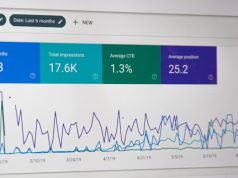
The Current State of the Online Collector Car Market
The collector car community has embraced the digital age, leading to an explosive growth in online marketplaces and auctions. What once required travel to shows or onsite auctions can now happen from the comfort of home, connecting buyers and sellers across continents in mere minutes. This shift has been particularly notable in the wake of global events that limited travel, pushing even the most traditional collectors online. For those looking to Sell Your Collector Car Online, these evolving platforms offer unprecedented reach and convenience. Trusted sources estimate the global collector and classic car market will surpass $43 billion in 2024, with a significant portion of these transactions moving through online channels. As highlighted by recent news coverage of classic car market booms, collectors are no longer limited to local events or personal contacts — anyone can tap into this thriving international network.
With so many choices for where to list, finding the best place to sell classic cars is now a strategic decision. Savvy sellers look for platforms prioritizing collector vehicles, offering a specialized audience reach, and incorporating features tailored for high-value sales. A well-selected platform gives your classic the right stage, placing it in front of buyers who genuinely recognize what sets it apart. This broader exposure and more intelligent targeting ensure your prized vehicle gets the attention it deserves, leading to more qualified leads and a better chance of finding an appreciative new owner.
Preparing Your Collector Car for Sale
Preparation goes far beyond a basic car wash to make a genuine impression in the marketplace. A detailed clean should include shampooing carpets, polishing chrome, applying leather conditioner, and addressing any subtle blemishes that might go unnoticed. Potential buyers in this arena are discerning; minor scratches, dull headlights, or unkempt engine bays can influence perceptions about how well the car was maintained.
Mechanically, performing all routine maintenance—oil changes, fluid checks, tune-ups—demonstrates responsible ownership. Fix or disclose minor mechanical quirks upfront; honesty around repairs can increase buyer trust. Investing in a professional appraisal or independent pre-sale inspection can provide you and the buyer peace of mind for rare or especially valuable vehicles. Documentation of recent service, a folder of receipts and records, further proves the car’s provenance and care. This detailed level of preparation ensures your listing stands tall among other vehicles vying for attention.
The Power of Great Photography
In today’s digital-first selling environment, compelling images are your primary sales tool. A single blurry or under-exposed photo can significantly reduce buyer interest, while galleries with 20-30 high-quality photos dramatically boost engagement and inquiry rates. Consider starting with wide angles to capture the vehicle’s presence, then add detailed shots of the wheels, engine bay, undercarriage, and interior quirks unique to your model.
Professional sellers recommend photographing with a consistent background — preferably uncluttered, with soft, natural daylight. Golden hour light (shortly after sunrise or before sunset) gives vehicles a warm glow without harsh reflections. If your car has original documentation, rare badges, or chassis stamps, include those photos as proof of authenticity. If you plan to Sell Your Collector Car Online, presenting clear, detailed images is essential to attracting serious buyers. Don’t avoid documenting flaws; experienced buyers appreciate complete transparency and may even view it as a sign of integrity. Listings that feel “real” encourage more genuine offers and lead to fewer disputes or surprises.
Writing a Compelling Vehicle Description
Consider your collector car’s description as a narrative and a technical overview. Start with what makes the car special—a rare production number, unique color, or fascinating ownership story. Then, provide a thorough, honest breakdown of specs: exterior and interior colors, features, mileage, notable restoration work, original parts, and any tasteful modifications. Use this section to set realistic expectations around the car’s driving experience and overall condition.
Avoid over-the-top superlatives or “barn find” clichés unless they truly apply. Instead, highlight real strengths, be transparent about flaws, and always mention available paperwork, provenance, and supporting documentation. Real-life examples and anecdotes are welcome: “This Mustang won Best In Class at a state concours event in 2019,” or “The vehicle has been in our family for 30 years and lovingly serviced.” Clarity, structure, and candidness inspire confidence in buyers, leading to informed inquiries and smoother negotiations.
Pricing Strategies for Classic and Collector Cars
Pricing can be the most challenging aspect of selling. Aim too high and risk months with no genuine offers; if you are too low, you may leave thousands on the table. The first step is researching comparable vehicles using reputable sources, including live auctions and online listings. Leveraging respected valuation guides lets you compare similar cars by year, trim, mileage, restoration level, and region.
Next, take honest stock of your vehicle’s condition: “concours,” “excellent,” “good,” or “driver.” If possible, look up recent car sales prices that match the condition and rarity. Factor in desirable factory options (special paint, rare engines), as premiums can be significant. While pricing, consider the market’s seasonality—convertibles often sell better in spring and summer, for instance. And remember, buyers in this space are typically educated; a transparent and research-driven price attracts offers and simplifies the negotiation stage.
Documentation: Building Trust with Buyers
Collectors gravitate toward vehicles with airtight paper trails. Scan and organize all relevant paperwork: title, registration, ownership documents, maintenance logs, restoration invoices, period literature, or original window stickers. Many buyers want a digital folder before visiting in person or arranging transport. If you plan to Sell Your Collector Car Online, having these documents organized and ready to share is essential. Recent studies show that more than 80% of classic car buyers say that comprehensive documentation directly impacts their purchase decision.
Organized documentation not only streamlines the sales process but also shortens negotiation cycles. Buyers often pay premiums for vehicles with complete histories and matching numbers. Sellers who readily supply paperwork tend to move vehicles faster, with less haggling, and more satisfied buyers at the end of the process. Treat this step as one of your main selling points — it demonstrates pride of ownership and respect for the next caretaker.
Navigating Inquiries and Negotiations
The period after listing can be lively, with buyers reaching out for more photos, history, and details on the car’s quirks. Responding quickly and with candor signals that you’re a serious seller ready to make a deal. Prepare for various inquiries: some buyers will have deep technical questions, while others may seek reassurance about paperwork or transport.
Negotiation is typical—and even enjoyable when conducted respectfully. Set your “must-have” price beforehand, but remain open to thoughtful offers. If a user requests a third-party inspection or asks about remote purchase and delivery, it is a sign of trust. Experienced sellers know that high-quality communication often brings about the highest quality buyers. Closing the deal becomes a matter of details and logistics, rather than a stressful sprint to agreement.
Using Trusted Resources to Stay Informed
The collector car industry evolves yearly, shaped by trends, economic considerations, and cultural shifts. Regularly reading the popular press and enthusiast publications gives you fresh insight into what buyers want—and what’s falling out of favor. For example, this New York Times article provides a data-driven analysis of how tastes and selling prices are changing, helping sellers anticipate the best timing for their specific vehicle. If you’re looking to Sell Your Collector Car Online, staying current with these insights can give you a competitive edge.
Drawing on this knowledge, sellers can tailor their listings and negotiations to current demand, leveraging seasonal shifts and trending vehicles. Join online forums or local clubs to stay connected and sharpen your selling instincts. Combining practical preparation, compelling presentation, and a finger on the market’s pulse will ensure a successful and rewarding sale, and potentially inspire the new owner to love your classic just as much as you did.






